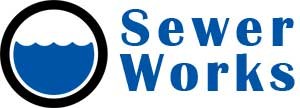Alternative Septic Systems Basics
Approval for Installation
Before any Innovative Alternative System technology can be used in Massachusetts, it must be reviewed and approved by the Department of Environmental Protection (MassDEP). Before it can be installed at a particular site in a given community, the local board of health needs to review and approve plans prepared by a qualified designer who is either a registered professional engineer or a registered sanitarian. In certain instances, the site-specific local approval must then be sent to MassDEP for concurrence and final authorization.
Both local and state environmental officials involved in the approval process are responsible for ensuring that:
- The proposed system meets local requirements, which may be more stringent than MassDEP’s
- The selected I/A technology will perform at least as well as, if not
better than, a conventional septic system - The installation is done in accordance with all the requirements of Title 5
Currently there are over 50 I/A systems approved for use in Massachusetts.
Purchasing a property with I/A technology
If you are thinking of purchasing a previously owned home that uses an I/A technology, you should get answers to the following questions from an on-site professional:
- What does the performance data show?
- What type of MassDEP approval does this system have?
- What are the sampling and testing requirements? What will the operation and maintenance service contract cover?
- Is there any information available on equipment or operating problems?
Don’t sign a purchase-and-sales agreement until you are fully informed about the type of I/A system in use on the property, as well as the related maintenance contract requirements, annual operating and energy costs, and maintenance history.
Maintenance and Repair
I/A systems perform well when they are designed, installed, operated, and maintained in accordance with the technology specifications and MassDEP’s technology approval. However, I/A systems require a higher level of maintenance and are more expensive to operate and maintain than a conventional septic system. They can include pumps, aerators, fans and other mechanical parts, which increase the initial cost of the system and add costs for electricity to run the system.
If you own an I/A on-site system, you should know the kind of technology being used and keep good records on the system’s location. You also must follow the manufacturer’s specifications for operating the system, and be careful in using and discarding chemicals, such as disinfectants or paints, that may harm the system.
Title 5 requires that system owners have a special operation and maintenance (O&M) contract in place for the life of the system. Please see the Maintenance page for more details.
